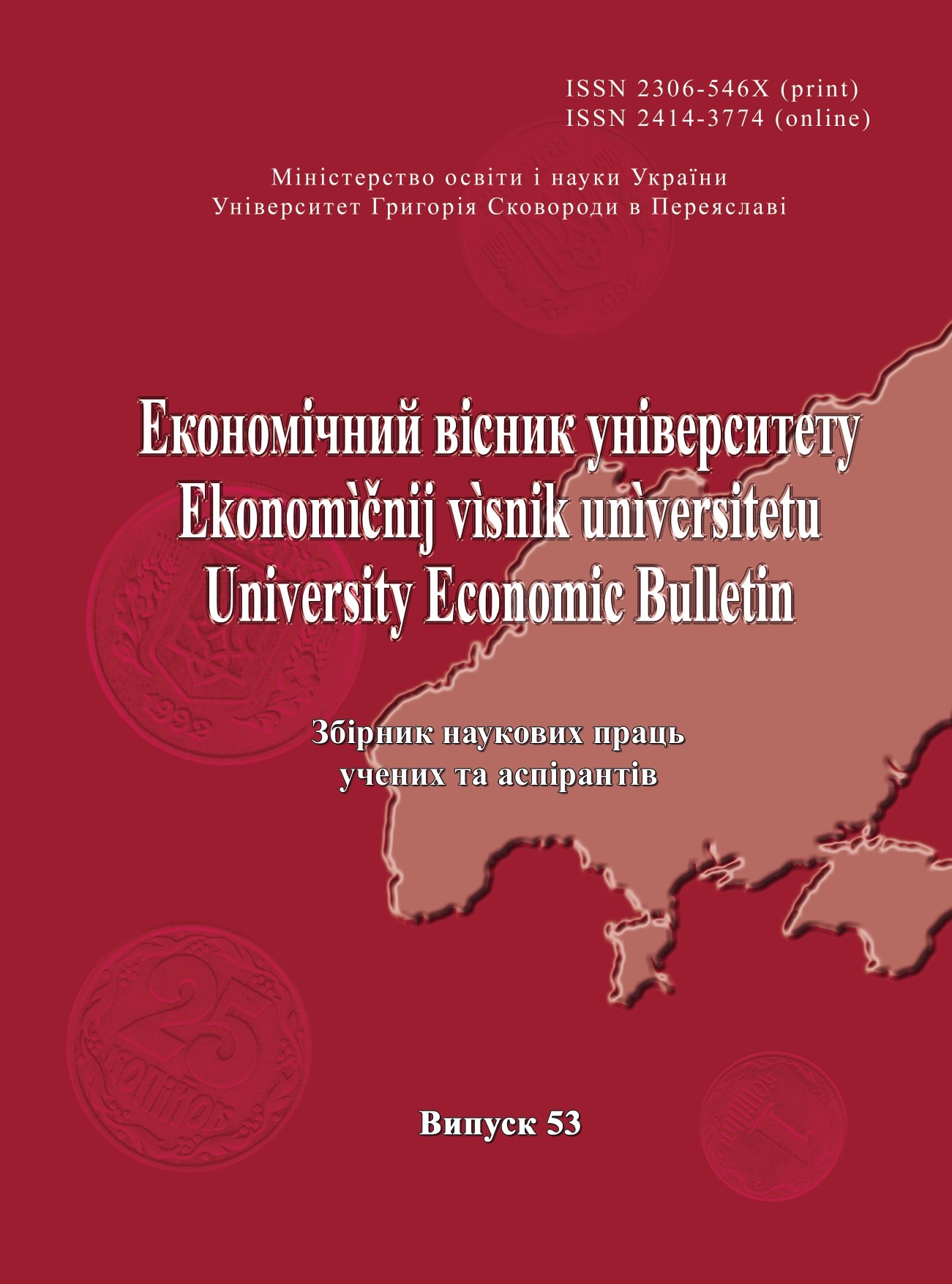Соціальні інновації як нова модель взаємодії самоврядування та самоорганізації населення
Social innovations as a new model of interaction between self-government and self-organization of the population
Author(s): Olena Vasyl’yeva, Lidiia HoroshkovaSubject(s): Public Administration, Sociology, Economic policy, Social development
Published by: Університет Григорія Сковороди в Переяславі
Keywords: social innovations; sustainable development; socialization; social interaction; self-government; self-organization;
Summary/Abstract: Relevance of the research topic. Social innovations are an effective tool for the introduction of social values that provide a new format of social interaction of social actors of sustainable development. Innovations are studied in various spheres of social practice and are understood as socio-cultural phenomena that come from the economic and technological plane. Problem statement. Despite some developments in the study of social innovation, there is a need to move to a new theoretical understanding of the phenomenon of "social innovation", which arises in response to understanding the role of innovation in the model of interaction of self-government and self-organization, as a tool for prompt resolution and smoothing of the consequences of modern socio-economic problems. Analysis of recent research and publications. The relationship of the phenomenon of innovation with the economic development of society, identified by N. D. Kondratiev and J. A. Schumpeter, encouraged the study of innovation as a complex process structured from the stage of basic research to practical application. Further understanding of the concept of "innovation" was proposed by S. Kuznets, who showed that innovation in addition to the technological aspect, have a social - new technologies cause social change (institutional, ideological, etc.). Modern forms of social innovation in the context of sustainable development strategy was studied by D. Antonyuk, who cites the results of their application in the leading countries of the world in order to ensure qualitative change in society. V. Geets, exploring the role of socialization and social innovation in the interaction of business and the state, focused on ensuring social interaction at the macro level by ensuring cooperation in uniting people in a variety of groups, communities to perform actions conditioned by life. T. Kuz emphasizes the establishment of partnerships through social innovations, constructive dialogue between government, business, self-government and self-organization of the population in order to increase the effectiveness of their cooperation. Selection of unexplored parts of the general problem. To date, there is no single approach in the scientific community to the definition of the term "social innovation", which covers a significant part of society. The role of social innovations in the model of effective interaction of self-government bodies and self-organization of the population, as well as the forms of their manifestation are insufficiently covered. Problem statement, research goals. The above circumstances determine the feasibility of determining the role and effective forms of social innovation in the interaction and cooperation of stakeholders for the development of communities and territories. Method and methodology of research. The set of methods of empirical and theoretical research (analysis and synthesis, abstract-logical, generalization and system analysis) in the process of research was used. Presentation of the main material (results of work). A retrospective analysis of the formation of the phenomenon of social innovation, the author's definition of the term "social innovation", the main tools for the development of social innovation and current areas of their use. It is noted that social innovations as new ways of human interaction in the form of supporting positive initiatives, personal projects, training and skills development of volunteers intensify the development of local communities by establishing a wide network of horizontal and vertical relationships between social attractors. Field of application of results. The obtained results can be used in the self-government bodies of territorial communities in order to increase the effectiveness of stakeholder interaction in the process of achieving sustainable development goals. Conclusions. Today in Ukraine the introduction of social innovations in management processes is in its infancy, there is virtually no experience of self-organized structures and their interaction with self-government bodies, which requires improvement of volunteer management, dissemination and development of fundraising and crowdfunding, creation of social clusters for human innovation, which is focused on sustainable development.
Journal: Економічний вісник університету
- Issue Year: 2022
- Issue No: 53
- Page Range: 13-23
- Page Count: 11
- Language: Ukrainian

